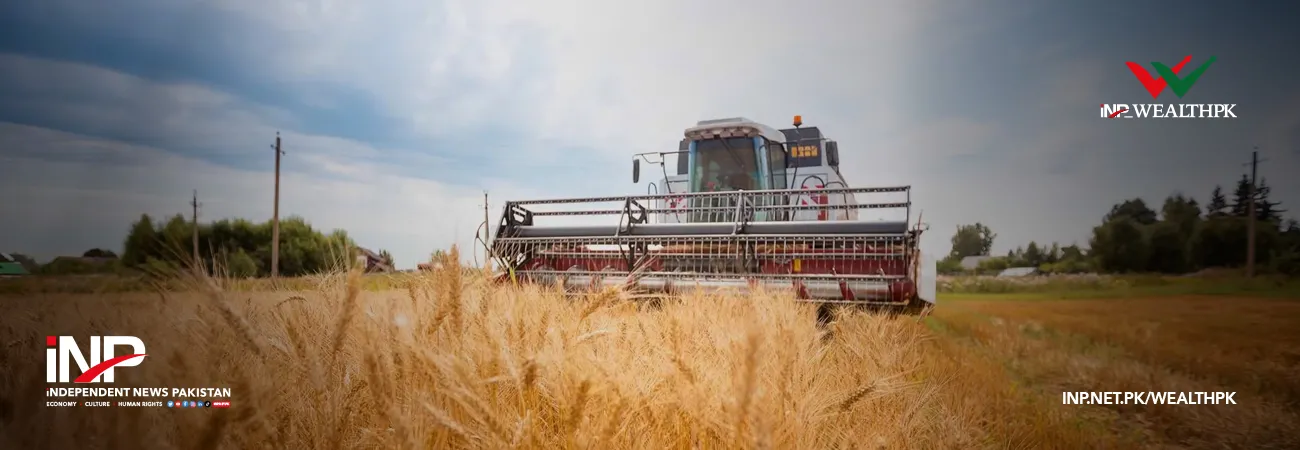INP-WealthPk
Ayesha Saba
The expansion of Pakistan-China educational partnership into agri-tech marks a strategic shift toward sustainable agriculture. By integrating academic collaboration, technology transfer, and on-ground implementation, both nations aim to modernize Pakistan’s farming sector.

Talking to WealthPK on condition of anonymity, an official from the CPEC Centre of Excellence said Pakistan’s agricultural sector contributes nearly 24% to the GDP and employs over 40% of the workforce. Yet, it remains plagued by inefficiencies, water scarcity, and outdated practices. He said China’s advancements in precision agriculture, drone technology, and bioengineering offer a blueprint for modernization that Pakistan urgently needs.
The establishment of Sino-Pak Agri-Tech Research Centers at universities such as the University of Agriculture, Faisalabad, and China Agricultural University underscores this commitment. These centers will serve as hubs of innovation, fostering collaborative projects on high-yield crop varieties, smart irrigation systems, and pest-resistant genetically modified organisms (GMOs).
He also informed WealthPK that nearly 1,000 graduates will receive professional training in nine advanced agricultural disciplines at the leading Chinese universities, marking a major step toward modernizing Pakistan’s agricultural sector. These students carry with them a deep understanding of the challenges faced by local farmers, while Chinese institutions offer state-of-the-art technical expertise.
According to the official, this investment in human capital is a long-term approach to address structural weaknesses in Pakistan’s outdated agricultural practices, which are increasingly vulnerable to climate change, water shortages, and low productivity. Talking to WealthPk, Dr. Sadia Qureshi, a research fellow at the Sustainable Development Policy Institute (SDPI), pointed out that while government-led initiatives are crucial, sustained progress requires involvement from agribusinesses and startups.
“To facilitate the transfer of technologies, there is a need for further bilateral collaborations. Joint research initiatives, training programs, and technology exchange forums can pave the way for seamless integration of Chinese advancements into Pakistan’s agriculture sector. “The public-private partnerships can accelerate the commercialization of research outcomes, ensuring scalability and affordability for smallholder farmers. Moreover, the focus on agri-tech innovation aligns with the broader goals of environmental sustainability,” she said.
China’s achievement in harmonizing agricultural productivity with environmental preservation has been widely commended by experts globally. Its agroecosystems are frequently cited as exemplary models of effective resource management that align with sustainable environmental practice.
With Pakistan ranking among the top countries vulnerable to climate change, adopting climate-smart agriculture is no longer optional. Chinese innovations in drought-resistant crops and carbon-neutral farming practices could play a pivotal role in mitigating these risks, she added.
Credit: INP-WealthPk













